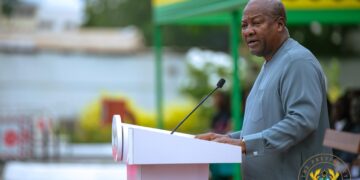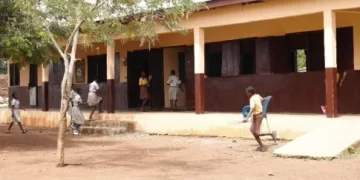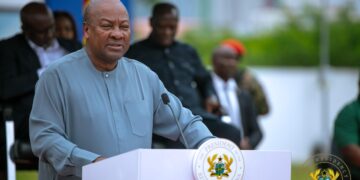Business magnate and 2016 presidential candidate of the Progressive Peoples Party (PPP) says government flouted basic business rules with its strategy on the recently commissioned Komenda Sugar Factory.
Dr. Paa Kwesi Nduom said Wednesday at a press conference in Accra that government’s strategy to finance the establishment of the factory and feed it with raw materials was not well thought out.
“I have factories. I have companies. There are some things you don’t do, other things you can do. You don’t go and borrow almost 100% of the money you need to start a factory. You don’t do that. You must have your own money, a little bit, to put there,” he said.
The PPP flagbearer also said at the press conference that he struggles to see an effective and credible management structure for the factory — another evidence that the plan that went into setting up the Central Region-based sugar factory was haphazard.
Shortly after President John Mahama commissioned the $35 million factory on May 30, comments from both politicians and policy analysts have sought to suggest that the project is a gimmick aimed at canvassing votes ahead of the November 7 elections.
Think tank, IMANI Center for Policy and Education, legislators from the opposition New Patriotic Party and many other business commentators have pointed to an absence of a rigourous cost-benefit analysis.
Vice President of the IMANI, Kofi Bentil, recently commented that the factory is likely to produce more political propaganda than sugar.
He based this analysis partly on an absence of a sugar value chain currently in Ghana. Others have also indicated that the price governemnt plans to buy the sugar cane from farmers would not sustain the factory.

Although President Mahama described the resurrection of the factory that had been liquidated in 1998 as the realisation of the dream of Ghana’s first president, Dr. Kwame Nkrumah, Dr Nduom and others think that assertion is far-fetched.
“We go and borrow 36 million dollars and we the Ghana Government will put in some 1.5 million dollars to start to build the factory and we say we have borrow another 25 million dollars to now build irrigation canals to help people grow sugar cane. You destroy rule number one of entrepreneurship for business building,” Dr Nduom said.
He also condemned the government for commissioning the factory without a plan to ensure that supply of raw materials would be adequately catered for.
“You don’t now go and put up a factory, commission it and say I have one or two acres where I am doing a nursery, and when the nursery germinates, I can give them to farmers,” he stated.
The current status of the factory has also been a source of major disagreement between government spokespersons and the Minority parliamentarians. While the Minority MPs said the factory had been closed down, government spokesperson said otherwise.

Until Joy News reporter, Richard Kwadwo Nyarko, visited the project site on Tuesday June 7, the general understanding was that the factory had been closed down for maintenance.
Some government spokespersons created even more confusion when they tried to justify why the factory had to be shut down two days after it was opened, before subsequent governemnt statements explained that the factory was running.
The factory was first built in 1966 as part of Dr Nkrumah’s aggressive industrialisation drive, however, by 1981 the sugar factory had ceased operations and later liquidated in 1998. Funding for the factory was provided by the Indian Export and Import (EXIM) Bank.
Source: Ghana | Myjoyonline.com

































